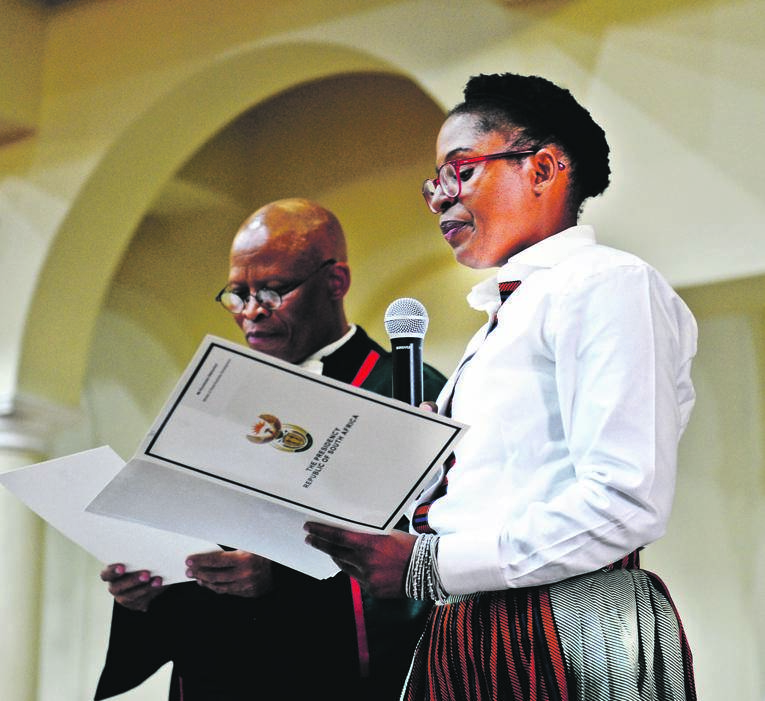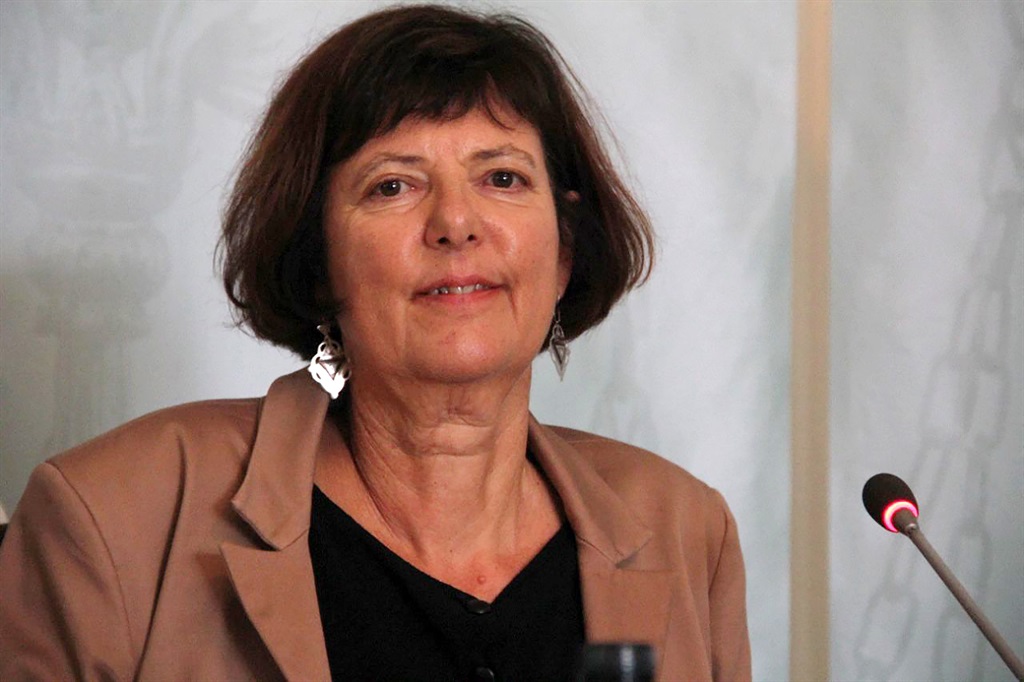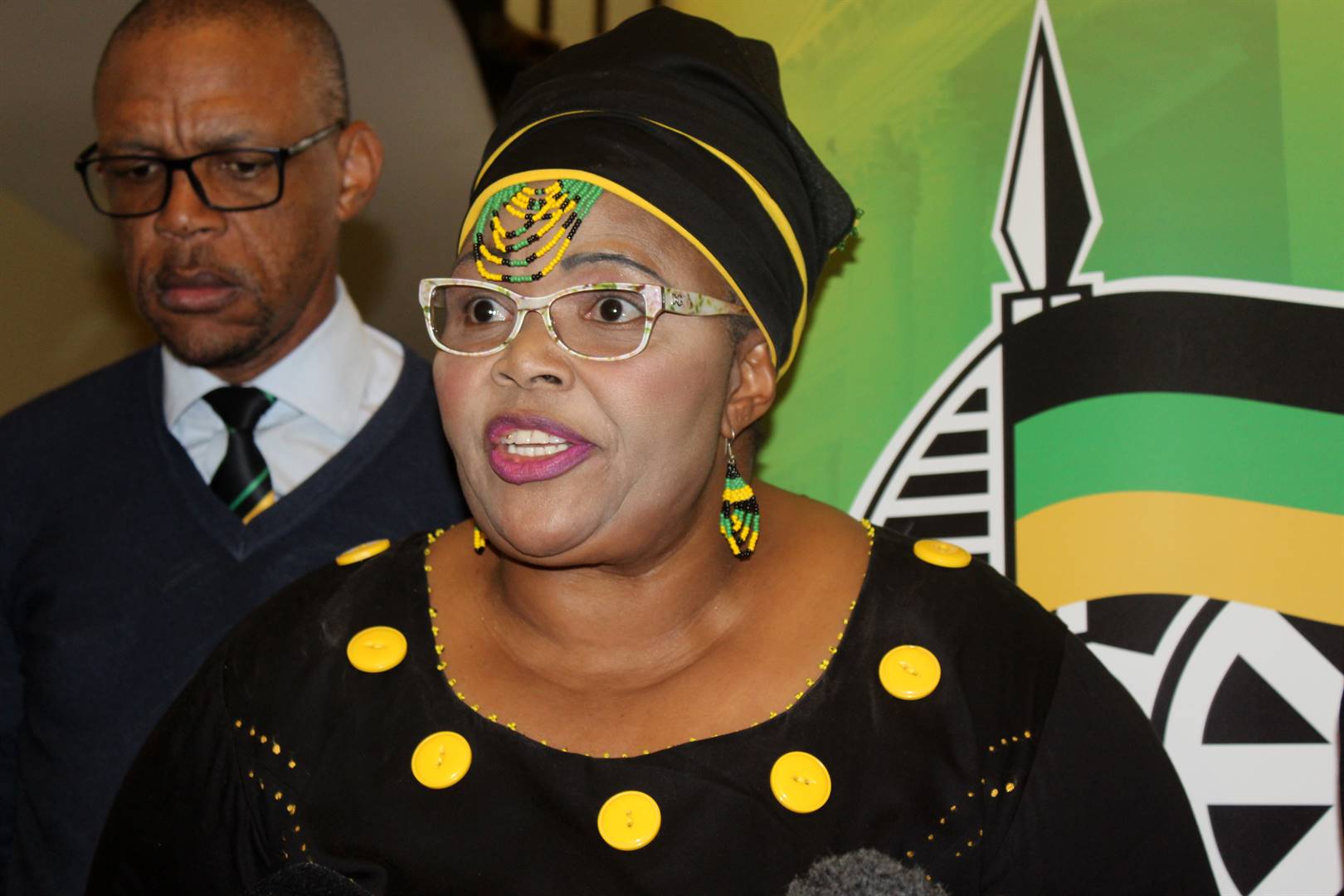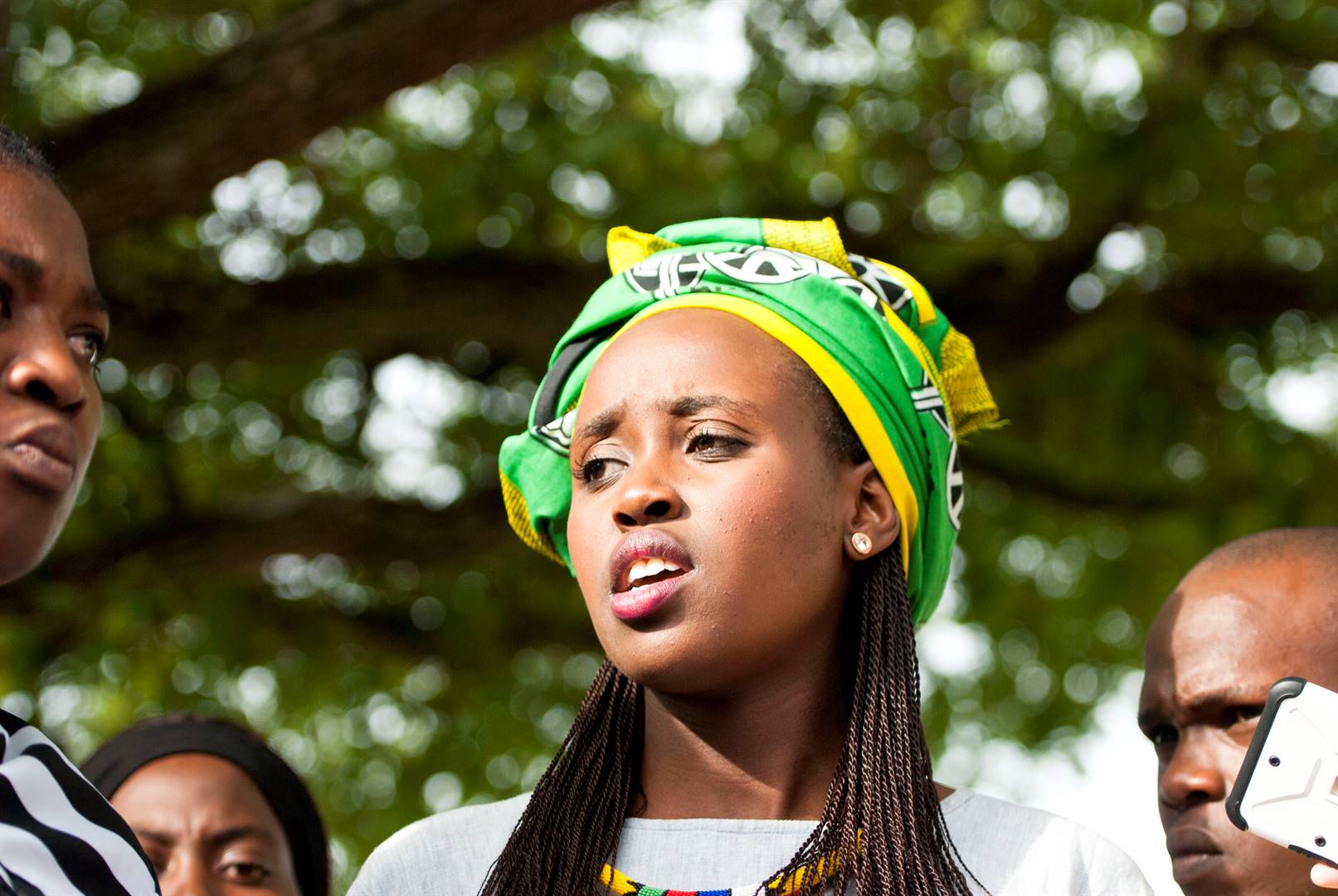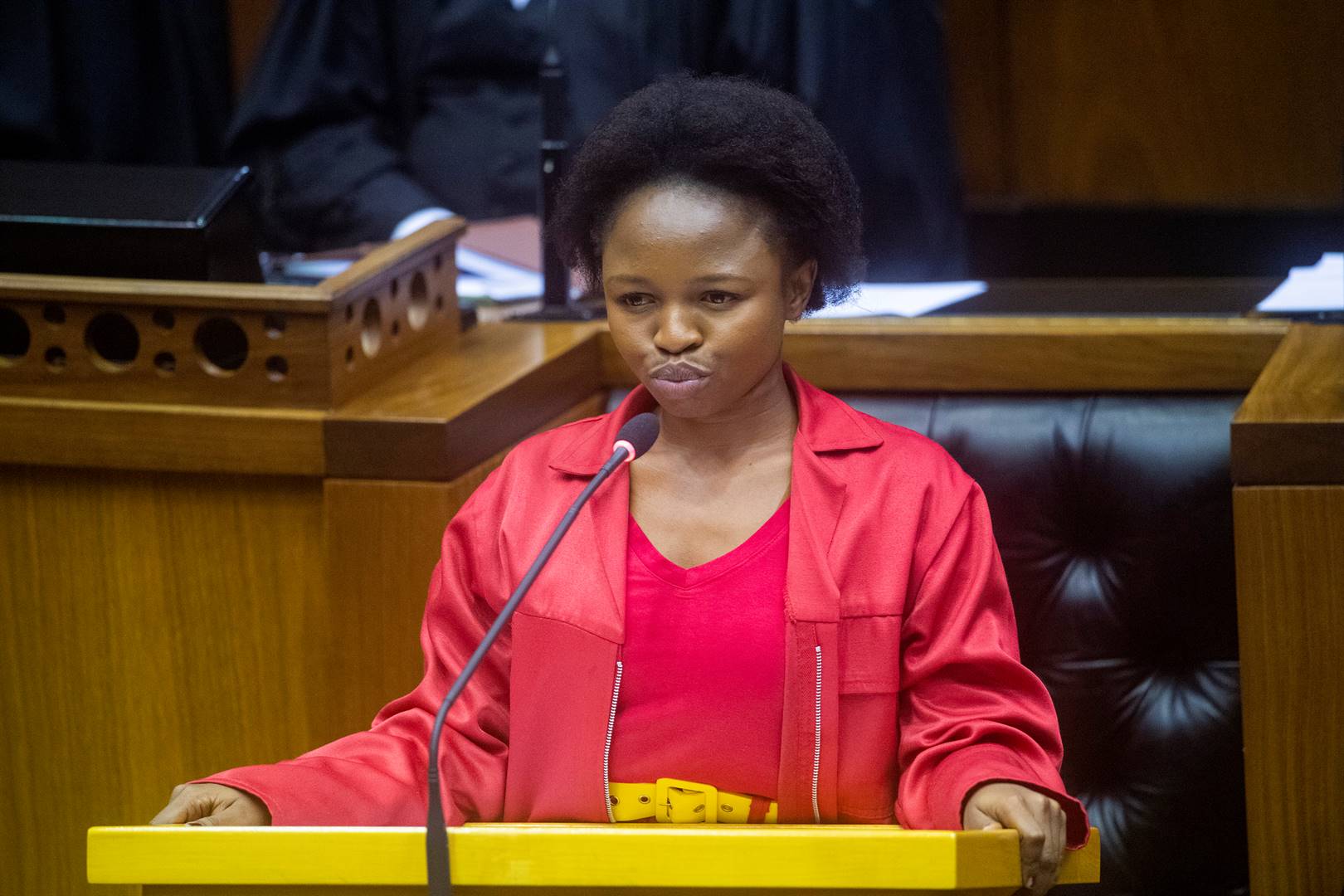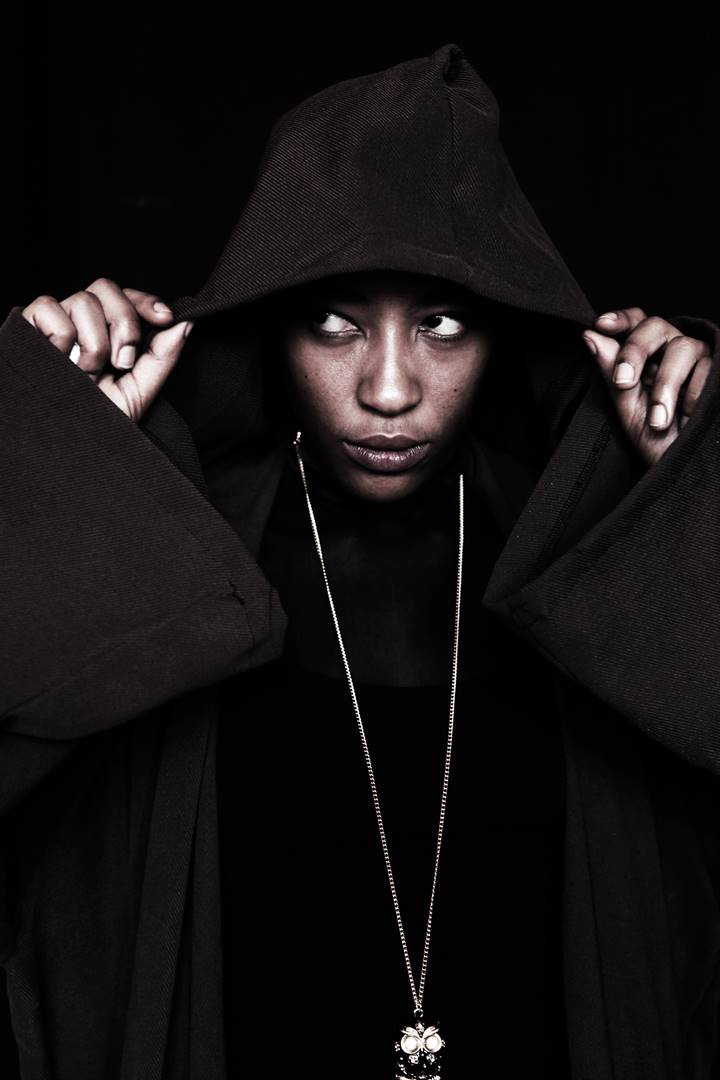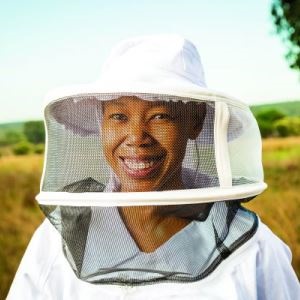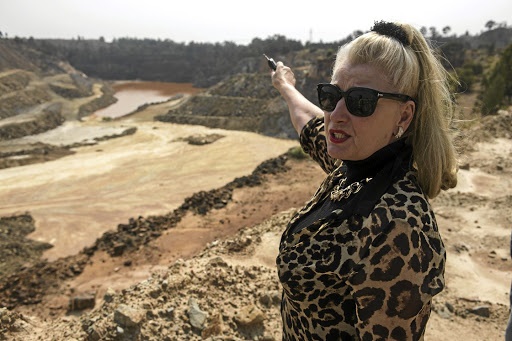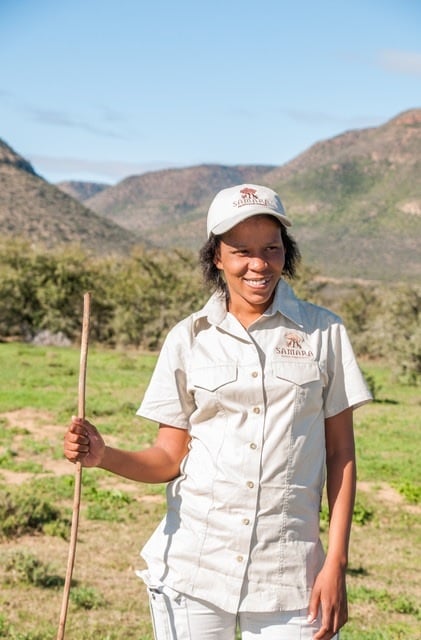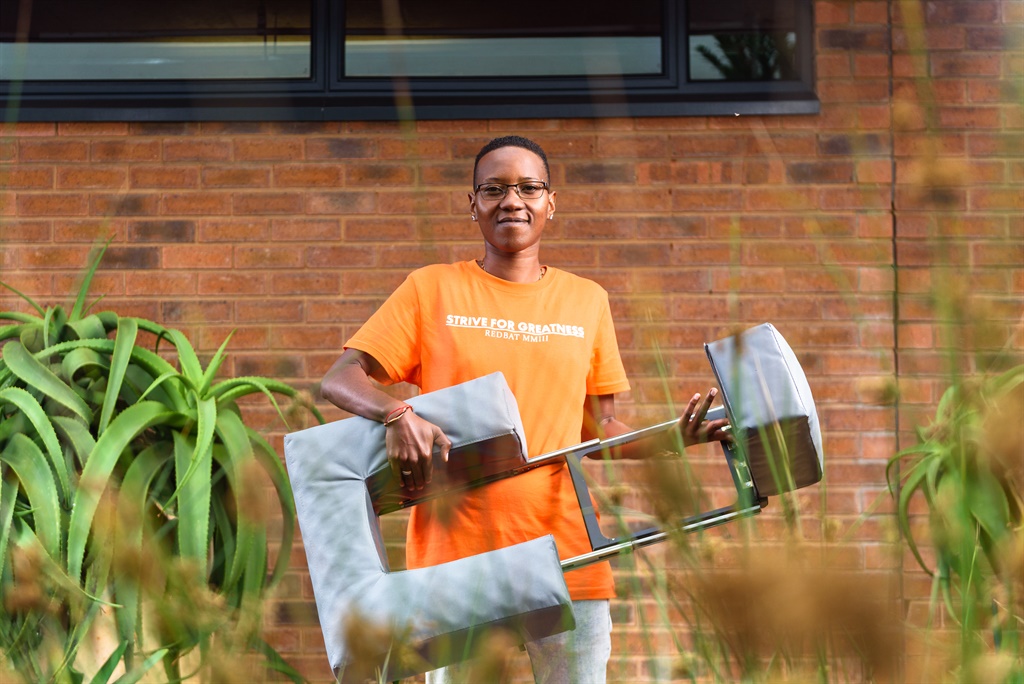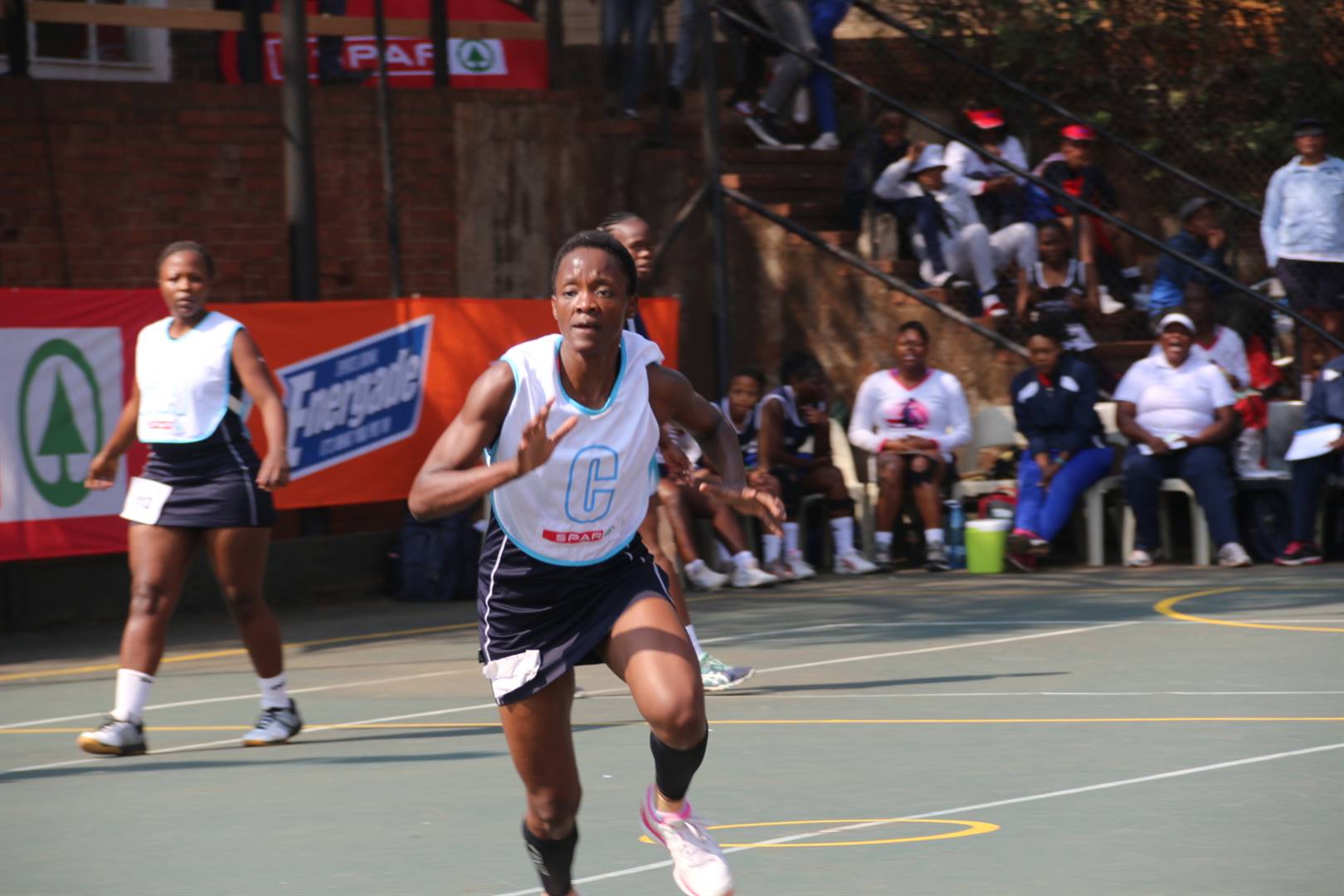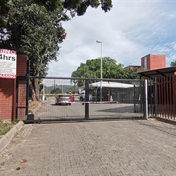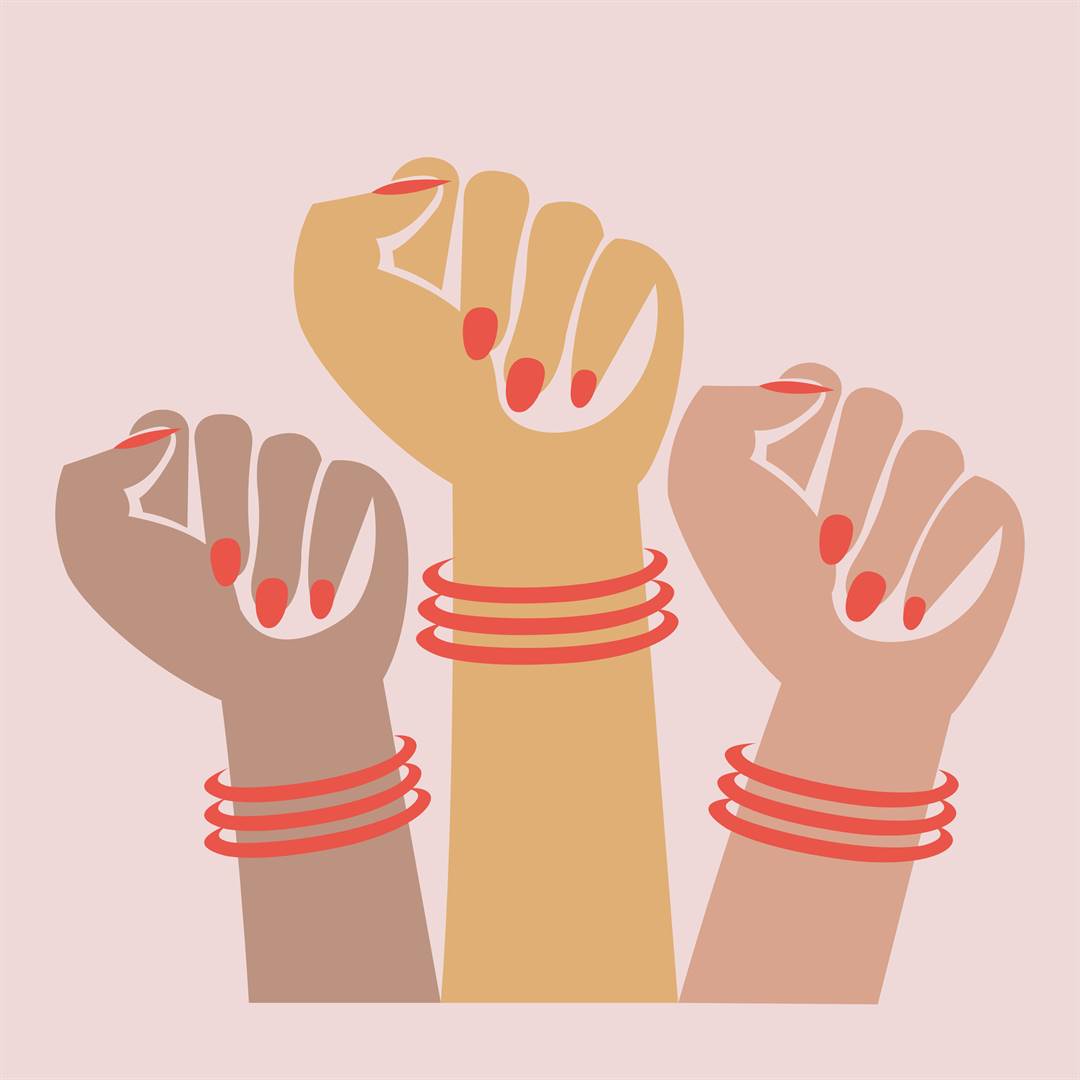
As part of our jobs, journalists meet all sorts of people, from celebrities to politicians.
Often, we walk away feeling dejected and despondent. But sometimes, the people we interview leave us feeling invigorated and inspired.
These are some of them:
Khumbudzo Ntshavheni, small business minister
Khumbudzo Ntshavheni, South Africa’s small business minister, once tried to persuade Nelson Mandela to get the ANC to negotiate that 16 be the voting age.
She was 14 at the time. It was the 1990s, during the heady days of the Convention for a Democratic SA.
President Cyril Ramaphosa was present during the interaction.
The interaction with Madiba planted the seeds of “focus and determination” in Ntshavheni, who says these are the same character traits that, years later, defined the role she played as municipal manager of Ba-Phalaborwa Local Municipality in Limpopo – in particular, the lesson that “age, gender and race have no bearing on my ability to achieve my set targets despite the obstacles”.
At age 42, Ntshavheni is one of the youngest ministers in the new Cabinet.
One of her most pressing tasks is to ask Parliament to amend the Small Business Act to better deal with current issues facing the sector.
This will entail updating the act to help small and medium-sized enterprises (SMEs) to access funding from state agencies and the banking sector, and to ensure that small businesses are paid within the prescribed 21 days.
She says big business, too, ought to assist in creating access to markets for small traders and, as a measure of last resort, “if we need to set quotas, it should be so”.
Ntshavheni believes that if small businesses are able to survive the first five years of being established and could grow to medium-sized businesses, job creation would boom.
“To achieve this, we need to remove the red tape, improve their cash flow through paying them on time, help them access markets for their products, and upskill them for proper financial management.”
Sufficient groundwork has been done, she says, and now it is time for implementation.
– Setumo Stone
Read: New minister knows all about small business
Barbara Creecy, minister of forestry, fisheries and environmental affairs
Barbara Creecy is the first to admit that she inherited a department that is in good shape.
But she is in no doubt of the importance of her new job.
SA’s latest minister of environment, forestry and fisheries took over the old environmental affairs department earlier this year, with two new entities having been added to its functions: forestry and fisheries.
These previously fell under the department of agriculture.
Creecy says: “Some of the most pressing issues of our time, such as climate change, fall under this portfolio. President Cyril Ramaphosa is committed to creating jobs and fighting poverty, and this portfolio will play a big role as it is responsible for the sustainability, conservation and management of our natural resources.”
Creecy reiterates her intention to gain a deeper understanding of the departments in her ministry.
“There has been a lot of focus on the ocean economy. This is not just to do with fishing but also with the fact that South Africa has a 2 500km coastline, which calls into question what our role is with regard to shipping.”
She says forestry is a big commercial activity that can contribute immensely to economic growth and jobs, particularly in the neighbouring province of Mpumalanga and elsewhere in the country.
She says that while she is trying to learn fast so she can hit the ground running, she is also “fortunate, because even if I have never been at national government before, I have served at executive level in the provincial government for 15 years”.
“I have had three diverse portfolios – in sports, education and finance. What that has taught me to do is ask: ‘How do I enter into a leadership space and quickly understand what the issues are, and how do I then look at starting to add value?’”
– Setumo Stone
Read: Barbara Creecy will build on work of predecessors as she inherits department in ‘good shape’
Pemmy Majodina, chief whip
ANC chief whip Pemmy Majodina has made a name for herself among fashion watchers with her love of sheer, loud-coloured fabrics and big, brim-feathered hats.
But her presence was impressive enough for the ANC’s national executive committee, which resolved that she would take up the top job of chief whip.
Majodina grew up as an orphan, is a “ruralitarian” from Sterkspruit, Eastern Cape, a preacher in the Methodist church, and mother to a young man named Mkhonto weSizwe, a name born out of a need to preserve history and also an ode to the “glorious army” she served in.
In her first address to the media alongside ANC secretary-general Ace Magashule, Majodina boldly proclaimed that the new parliamentary caucus would not be “lame ducks”.
The chief whip said she was making reference to the need for the ANC to revisit its understanding of its role of oversight in Parliament.
“As members of the ANC we must understand that we have a judiciary with a clear mandate, we have an executive with a clear mandate and a legislature with a clear mandate. If you can internalise that then you will know your role as the legislature.
“In the previous terms the ANC has been accused of asking darling questions and that we don’t hold the executive to account, and so on. The Constitution is very clear: there is a separation of powers. We as the legislature have a mandate to play an oversight role over the executive.”
The fifth Parliament was a tumultuous one, with it standing accused of failing in holding to account former president Jacob Zuma.
While emphasising the need for natural justice to be observed, Majodina is adamant that ANC members who serve in the executive and are found to be involved in wrongdoing will find no refuge in Parliament.
“If a matter comes to Parliament it must come. There is no one higher than the law. If we swear in a member today and tomorrow there is a damning report that finds the member guilty, we are not going to be defending an individual. We are here to preserve the values of the ANC. Whoever is found to be on the wrong side of the law must face the music.”
The chief whip will be making a comeback to Parliament, having served in the National Council of Provinces from 1999 to 2004 before making her way to the Eastern Cape government, where she was deployed in five different departments. She argues that this makes her no newcomer to the legislature.
“My vision is to make ANC members in Parliament accountable to their constituencies first. We are going to play an oversight role by ensuring that every item committed to in the manifesto is implemented.
“And if there is anything that cannot be done, it must be explained, because as we worked across the country, people were saying that when things change they are not informed.” – S’thembile Cele
Read: New chief whip Pemmy Majodina plans to sebenza all the way
Nompendulo Mkhatshwha, ANC member of Parliament
Well known for the iconic image showing her in an ANC doek, her fist in the air, which was shot at the height of the #FeesMustFall movement, activist Nompendulo Mkhatshwa (25) is now one of the 230 ANC MPs representing the party.
Mkhatshwa rose to prominence in 2015, while studying for her BSc degree at Wits University.
She was leader of the Students’ Representative Council (SRC). She has also worked part-time as a researcher at Luthuli House.
Mkhatshwa was short-listed at number 101 on the ANC’s national list of individuals to head to Parliament.
She represents the future of the ANC in all respects – a young woman and a gender activist who is driven by the plight of the youth and women.
Mkhatshwa has risen through the ranks of the ruling party, however, she has clearly not forgotten her roots. In her maiden speech in Parliament in June, she highlighted the struggles of incarcerated #FeesMustFall activists.
Using her platform as an MP, Mkhatshwa reminded society that a nation could not be built while others are left behind academically and economically.
Mkhatshwa said while the protests by students in 2015 and 2016 have resulted in great strides in the higher education space, it was concerning that some activists were still behind bars for fighting for free tertiary education.
– Juniour Khumalo
Read: Who’s getting the House in order? Youngsters and oldies will share the benches in Parliament
Naledi Chirwa, EFF MP
Student activist Naledi Chirwa (24) has rising in the ranks from serving as deputy president of the student representative council at Tshwane North College and fighting tirelessly to expose the debilitating circumstances of black people, black students and black women in the tertiary education space to now being counted among the EFF’s growing contingent in the National Assembly.
Introduced to student politics in 2010, Chirwa rose to serve as the media and communications officer for the EFF Students Command.
And has also been tireless in elevating the plight of jailed or student leaders facing criminal charges in to public discourse.
In her maiden speech at the National Assembly in June, Chirwa further entrench her optimistic ideology that young people are not prepared to sit on the sidelines while decisions are being made about them.
So powerful was Chirwa’s speech that even veteran parliamentarian Yunus Carrim asked: “What is this youth fundamentalism?”
With youthful female leaders like Chirwa there is no doubt that young people, like generations before them, are making their mark for all to see.
– Juniour Khumalo
Read: Who’s getting the House in order? Youngsters and oldies will share the benches in Parliament
Yugen Blakrok, hip-hop musician
Yugen Blakrok hails from the Queenstown, Eastern Cape but her work has propelled her to France, from where she spoke to #Trending earlier this year.
Last year her star elevated to the heights of Hollywood when she appeared on the acclaimed Black Panther soundtrack.
She featured on a track called Opps with US rapper and west coast representative Vince Staples, as well as Kendrick Lamar, who produced the album.
The experience for her was something she could not have imagined before.
“By featuring on a release that big and completely foreign to me, I learnt many valuable lessons. Vince is a funny dude and a great artist, live as well. I thoroughly enjoyed performing with him when he was in South Africa.”
The two shared a stage at Zone 6 Venue in Soweto when Vince toured here last year.
The streets had mixed reactions to the performance as the sound was perhaps not at the level it should’ve been.
Opps is a street term referring to opponents or opposition and features Kendrick Lamar doing his usual nonsense on the hook. Thankfully he makes way for the two emcees.
She is adamant that locally produced art can thrive internationally and she hopes that would motivate the local industry to treat our artists better and increase the chances of lucrative gains.
She is inspired by artists who have managed to shape their own lane in the arts, those who go against the grain, much like she does.
“I’m not one of those rappers that started at an early age. I didn’t always know what I wanted to do after I finished school.”
She first appeared on a mixtape in 2004 and only after that did the idea that she could do this professionally dawn on her.
“Before then, I was just playing with words.”
– Phumlani S Langa
Read: Get to know Yugen Blakrok, empress of the underground
Mokgadi Mabela, honey producer
Within African traditional medicine, honey has been used since time immemorial for its physical healing abilities, as well as for its symbolic and spiritual significance.
However, not all honey runs rich with the aforementioned therapeutic properties.
Approximately 60% of the honey on South African supermarket shelves is imported and irradiated to a point where nutritional benefits are negligible.
Mokgadi Mabela, a third-generation beekeeper, harvests and sells pure, raw honey from environmentally sustainable hives placed on farms and in rural communities across Gauteng, Mpumalanga and Limpopo.
Last year, she sold almost two tons of her multiaward-winning local honey brand Native Nosi – most of it via her online shop.
She attributes her success to the fact that “customers increasingly want to know where their food comes from and how it has been produced”.
“I place the hives, inspect the hives and harvest the honey. I can guarantee that my honey hasn’t been tampered with and our bees were not fed artificial nutrients. I can tell you exactly where the honey in every pot I produce comes from, as well as the conditions in that particular place.”
When it comes to honey, local really is lekker.
Mokgadi explains that “the closer the honey was produced to the location of your specific home, the more antibodies that pertain to your specific circumstances it will contain.
The bees will have fed on the flowers in your environment and those are the ones from which the pollen allergens that affect you come.”
Native Nosi honey is not only healthy, it is also delicious and diverse.
Mokgadi says “Nosi is the Sotho word for honey bee. To me, Native Nosi represents pure, natural unadulterated honey products produced locally and in harmony, and it also represents continuity with my past and present. My grandfather and my father were beekeepers before me, and I hope that Native Nosi reflects a respect for their skills and wisdom, and reveals a love connection in everything we do.
“Historically, bees have been associated with ancestral communication and, in my case, that connection is very direct. I hope my grandfather would be pleased that, even though I didn’t meet him, he was sowing the seed for what I do. Generations along the line, he would recognise my passion and commitment. I only know my grandfather through the stories that others tell, but all of those show him to be a man worthy of respect. It pleases me to honour that image. I want to respect his legacy. I want to make him proud.”
– Anna Trapido
Read: How Mokgadi Mabela built award-winning local honey brand Native Nosi
Mariette Liefferink, mining activist
Johannesburg’s mines have contaminated virtually everything in the city – from the water, to the air, to the ground.
While some communities live on radioactive land, others struggle with water laden with heavy metals.
And nobody knows this more than environmental activist Mariette Liefferink, who features in the documentary Jozi Gold directed by South African writer, award-winning journalist, playwright and film maker Sylvia Vollenhoven and award-winning Swedish director and journalist Fredrik Gertten.
Liefferink is the kind of subject film makers dream of.
The documentary’s opening shot sees her traipsing around an excavated field in sky-high heels, dressed to a tee in black tights, an orange blazer and plenty of jewellery.
A soft-spoken tannie with a clipped Afrikaans accent and coiffed blonde hair, she tells us later that she used to be a Jehovah’s Witness, so she’s used to be being “severely disliked”.
And dislike is a feeling she must drum up, as she chases down the CEOs of mining companies and holds the government department officials to account for exposing people to hazardous mining pollution.
Liefferink says she sees herself as a marathon runner instead of a sprinter, because her work requires a great deal of stamina.
In one scene, we watch her patiently phone a government department to lay a complaint about the discharge of untreated mine water into a river system.
It’s the 10th time she’s phoning, and she’s again sent from pillar to post. She hangs up cordially, then blinks away tears.
But hounding the government officials – too often unsuccessfully – is not her primary work.
Liefferink believes that environmental and social justice are inextricably linked, and she works with communities to hold mining companies to account.
In one case, she laid a criminal complaint at the local police against the former owner of the Blyvoor mine, for numerous environmental infractions committed between 2008 and this year.
She didn’t think anything would come of it, but to her surprise, the state decided to prosecute the mining directors responsible.
It’s a huge victory for the Blyvoor community, which has been dealing with the effects of mining pollution for years.
A third of all the gold in human history was mined in Johannesburg, and it was what gave birth to the city.
But now we’re dealing with an environmental crisis that few of us even know the extent of.
– Grethe Kemp
Read: Jozi Gold reveals shocking truths about mining pollution
Justa Frans, tracker
Making the choice to keep her Kwhe family traditions alive, 25-year-old Justa Frans went on a journey to learn the art of wildlife tracking.
Now she’s the first formally accredited female tracker in the Karoo.
The settlement of Platfontein, about 22km from Kimberley, in the Northern Cape, is home to the Kwhe and !Xun descendants of the San Namibian trackers.
In the 60s they were first deployed by t he Portuguese Angolan military forces in Angola, and later in the 70s by the former SA Defence Force in the Namibian struggle for independence.
After that war ended many chose to relocate to South Africa.
Frans’ family was one such. This 25-year-old was determined to keep alive her Kwhe family traditions so she made a choice.
She rejected the modern hip-hop culture burgeoning in Platfontein and is threatening the old folklore, storytelling, traditional music and healing dances.
“I didn’t want to lose my culture,” she says. “I chose tracking.”
Frans now works at the Karoo Lodge in the award-winning Samara Private Game Reserve located on 28 000 hectares of wilderness in the middle of the Eastern Cape.
Last year she graduated from the Sact Tracker Academy, a training division of the SA College for Tourism in Tswalu, South Africa’s largest private game reserve in the Northern Cape.
It’s a fully accredited training programme with the Culture, Arts, Tourism, Hospitality and Sport Sector Education and Training Authority and is the first tracker training school in South Africa to achieve this distinction.
Frans graduated with a Level 3 tracking qualification that requires a 90% score.
“I was taken into the bush. I thought it was just a classroom day. But it turned out to be the exam.”
She is now working as an intern at Samara Reserve that also has a tracker academy on site, and hopes to be appointed to a permanent position.
She is thrilled that Samara has recently become home to the first elephants and lions in the region for more than 170 years.
“I can now track the Big Five.”
She laughs as she says that guests are usually very surprised to have a woman tracker on their guided game drives and bush walks.
“I love to see their faces!”
Her ambition now is to get her driver’s licence and to teach other students, especially women, tracking skills.
“Tracking is in my blood,” says Frans firmly. “I know that in the past it was only the men who did the tracking but now a woman can too.”
She adds shyly: “Sometimes now the men are a bit jealous.”
– Kate Turkington
Read: Meet Justa Frans, the Karoo’s first formally accredited female tracker
Portia Mavhungu
Social innovator
Portia Mavhungu invented a device that allows those in wheelchairs to use the toilet without having to be lifted from their chair.
Thirty-year-old Mavhungu, a Pretoria-based social entrepreneur, called her invention the Para Tube.
She came up with the idea after being confined to a wheelchair for a while after an accident.
“In 2011, I had an accident where I broke my pelvis. I was in the hospital for several weeks and in a wheelchair for the rest of the year. I fell into a depression over the loss of my independence. I needed my mother to lift me every time I needed to use the toilet.
“I was in this situation for only a short time and thought about how hard it would be for those who experience this their whole lives.”
With the Para Tube, the user pulls the centre part of the seat forward with a handle, and the middle seat flips up in the shape of a toilet. The user then defecates or urinates into a biodegradable bag in the opening. The bag locks in any smell and can then be disposed of in a similar way to a nappy.
This invention is the first of its kind. Its efficiency and use of material offer greater comfort and ease than anything else available on the market.
“The commode, which is our competitor, uses a bucket system. The commode seat is hard and people start sweating and develop sores, and their backs are hurt,” says Mavhungu.
“With us, the seating is breathable material. It has PVC in the centre, so you’re able to wipe it. The seat is waterproof and the height of the seat protects the user’s lumbar spine.”
The device will also be a great help in hospitals.
“We have a shortage of nurses in South Africa,” says Mavhungu. “When you’re in a hospital, you have to wait for a nurse to lift you and place a steel bedpan underneath you.
“I remember being in hospital with a broken pelvis and being taken off morphine. The nurses would put a bedpan underneath me and leave me, and I would just be shaking and in pain and waiting for the nurse to come back to take me off the bedpan.”
Mavhungu says she didn’t decide to become an inventor, but always knew she wanted to help people. Her mother died from cancer in 2017, and she left her job to focus on developing the Para Tube.
“What drives me is the passion. I know I’ve succeeded when someone has used the device and it’s helped them,” she says.
– Grethe Kemp
Read: This SA-invented device helps the disabled use the toilet
Bongiwe Msomi
Netball player
Bongiwe Msomi (31) is the captain of the applause-deserving South African Netball Proteas team that reached the playoffs at the 2019 Netball World Cup in Liverpool for the first time in 24 years.
Having started playing netball at the tender age of 16 Msomi said she could never have imagined herself playing for the national squad let alone leading the team.
“Being selected to play for the national team has been the highlight of the 15 years I have been plaing netball. I have played overseas, in countries including Australia and England but the best thing for me, I can never take away the moment I was announced as a South African national player,” she said.
Msomi said she never purposefully got in to the sport which now holds a special place not just in her heart but in her life.
“Where I grew up soccer and netball were the major sports. Even when I tried things like athletics I realised I was nowhere close to being good. So I went to watch some neighbourhood friends in one of their netball training sessions one day and they were one player short and that is how I got into netball,” she said.
The Proteas captain said she is glad that she took up the sport because it has a lot to offer young girls.
She has been captain for more than three years and said she could not be prouder.
“I am part of this amazing team and representing my country is humbling,” Msomi excitedly said.
South Africa is set to host the next edition of the Netball World Cup, in Cape Town in 2023.
– Palesa Dlamini




 Publications
Publications
 Partners
Partners




